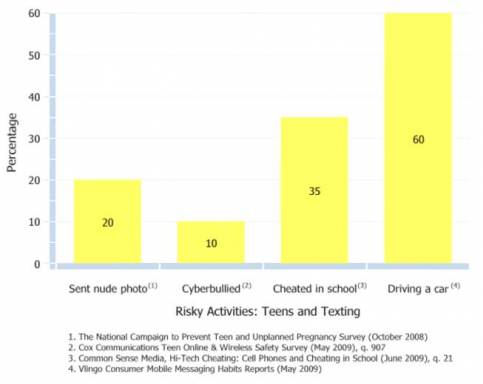At the top of the homepage is a screenshot of a shirtless man and a busty woman in a bikini top embracing in waist-deep water and staring into each other’s eyes with the phrase “Create your fantasy” underneath.
The website is called IMVU, a realistic Sims-like game and social networking virtual world purported to be for kids ages 13 and up.
IMVU players select an avatar and buy clothing and items to personalize its world. The avatars have adult bodies (not 13-year-old ones,) and virtually all of the female avatars are sexy and large-chested with suggestive outfits to match.


 Things were sure different when we were kids. If we needed to call mom and dad away from home, we had to find a pay phone. But cell phones are becoming
Things were sure different when we were kids. If we needed to call mom and dad away from home, we had to find a pay phone. But cell phones are becoming  Does your 2010 holiday list include a child, tween, or teen gamer? Statistics say that 90% of parents don’t
Does your 2010 holiday list include a child, tween, or teen gamer? Statistics say that 90% of parents don’t  Now that most kids carry their video-enabled cell phones around everywhere with them, everybody is a cameraman. This can be a good thing – we’ve all heard stories about a thief who was caught because a bystander just happened to catch the robbery on his
Now that most kids carry their video-enabled cell phones around everywhere with them, everybody is a cameraman. This can be a good thing – we’ve all heard stories about a thief who was caught because a bystander just happened to catch the robbery on his YouTube provides a completely free platform for uploading, sharing, and viewing video content on any subject. You can laugh over a parody of Twilight, see your nephew take his first steps, learn how to seal the grout on your tile floor, or prove to your kids that an octopus can, in fact, fit through an opening the size of a quarter. Here’s what you need to know about using this
YouTube provides a completely free platform for uploading, sharing, and viewing video content on any subject. You can laugh over a parody of Twilight, see your nephew take his first steps, learn how to seal the grout on your tile floor, or prove to your kids that an octopus can, in fact, fit through an opening the size of a quarter. Here’s what you need to know about using this  We know that tweens and teens are really, really good at texting.
We know that tweens and teens are really, really good at texting.  Putting the family computer in a well-trafficked, central location of the house has always been one of the first lines of defense for parents who want to keep their kids safe online. But
Putting the family computer in a well-trafficked, central location of the house has always been one of the first lines of defense for parents who want to keep their kids safe online. But 
 Most people your child meets on the Internet will be harmless, but there’s still danger in making friends online.
Most people your child meets on the Internet will be harmless, but there’s still danger in making friends online. We all have heard the old adage that bullies only pick on others because they feel bad about themselves. But when it comes to cyberbullying, that may not actually be as true as we thought.
We all have heard the old adage that bullies only pick on others because they feel bad about themselves. But when it comes to cyberbullying, that may not actually be as true as we thought. Alexis Pilkington. Robyn Nixon. Phoebe Prince. These teenagers left their marks on the world by taking their own lives in the wake of relentless cyberbullying.
Alexis Pilkington. Robyn Nixon. Phoebe Prince. These teenagers left their marks on the world by taking their own lives in the wake of relentless cyberbullying. As the word
As the word  Sexting is quickly becoming a rampant problem
Sexting is quickly becoming a rampant problem Would your teen start to get the shakes after 15 minutes if you took away the computer and all their Bluetooth-enabled devices? If so, it may be time to worry about their online usage’s impact on their mental health.
Would your teen start to get the shakes after 15 minutes if you took away the computer and all their Bluetooth-enabled devices? If so, it may be time to worry about their online usage’s impact on their mental health. I’m pleased to announce that MySpace has now been added to our service via the FamilyConnect platform. This new feature enables you to better educate, engage with and protect your child when they use the
I’m pleased to announce that MySpace has now been added to our service via the FamilyConnect platform. This new feature enables you to better educate, engage with and protect your child when they use the 
 So you’ve had the Internet safety conversation with your child: no giving out personal information online, no talking to strangers in chat rooms, and no sending elicit photos or texts. What next?
So you’ve had the Internet safety conversation with your child: no giving out personal information online, no talking to strangers in chat rooms, and no sending elicit photos or texts. What next? In March, Ashleigh Hall’s name was splashed across newspapers everywhere after her body was found in a ditch. The 17-year-old had done something that a worrisome number of teens do: made a new friend on Facebook and gone to meet him.
In March, Ashleigh Hall’s name was splashed across newspapers everywhere after her body was found in a ditch. The 17-year-old had done something that a worrisome number of teens do: made a new friend on Facebook and gone to meet him..jpg?width=231&height=154&name=Depositphotos_24869343_xs_(1).jpg) Sexting. To a parent’s ears, even the name is scary. Here are some of the straight facts about
Sexting. To a parent’s ears, even the name is scary. Here are some of the straight facts about 